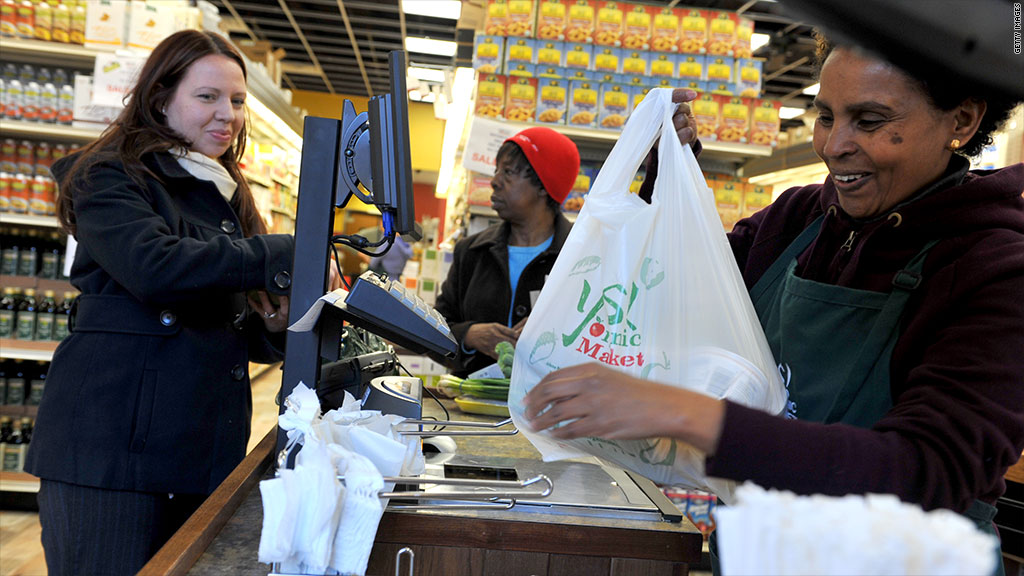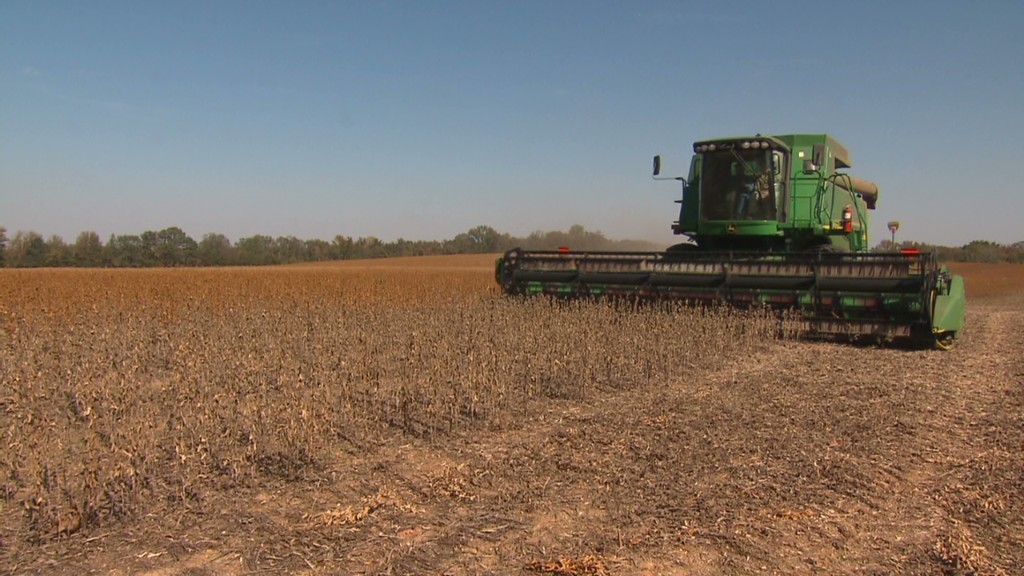
House Republicans on Thursday passed a controversial bill that would drop 3.8 million people from food stamp rolls next year by making it tougher for some families to qualify.
The bill would cut $40 billion from food stamps over the next decade, which would force about 14 million people from the program by 2023, according to the nonpartisan Congressional Budget Office.
It would tighten the rules for getting into the Supplemental Nutrition Assistance Program, which has seen enrollment soar with the struggling economy.
Some 47.6 million people, or nearly 15% of the population, get food stamps, according to September federal data. In 2007, only 26.3 million, or 8.7% of the population, got food stamps.
The average benefit is $133.19 per person each month.
Related: Income, poverty and uninsured in your state
The Obama administration said Wednesday it would veto the bill that trims 5% from the budget of food stamps budget. And Senate Democrats assure the bill won't get far in their chamber.
"In the richest country in the world, 1 in 6 people are in danger of going to bed hungry tonight, and half of those people are children. But despite these sobering numbers -- and despite the difficult economic times -- House Republicans... are determined to gut the nutrition assistance program," Senate Majority Leader Harry Reid said Thursday.

But House Republicans say their bill makes reforms that would eliminate those who shouldn't be getting food stamps by closing "loopholes which have let people whose monetary resources are above eligibility standards into the program," according to a a memo from the Office of House Majority Leader Eric Cantor.
Related: Poor hit hardest by Washington budget cuts
Basically, it would cut benefits for "able-bodied adults" who aren't caring for children to only 3 months of food stamps during any 3-year period, unless they also work part-time or are in a job-training program.
The bill also scrubs a provision that gives states the option to allow some working families and seniors to get food stamps, even if they have a little more in total assets that allowed by the eligibility rules.
Early Thursday, it wasn't clear that Republicans had enough votes to pass the bill, with House Democrats opposed and some Republicans, particularly from rural areas, quietly questioning the bill.
Even if no changes are made in current law, in November food stamp benefits will drop for all beneficiaries by about $11 per person a month, when a recession-related boost to food stamps -- part of the 2009 stimulus package -- runs out.


